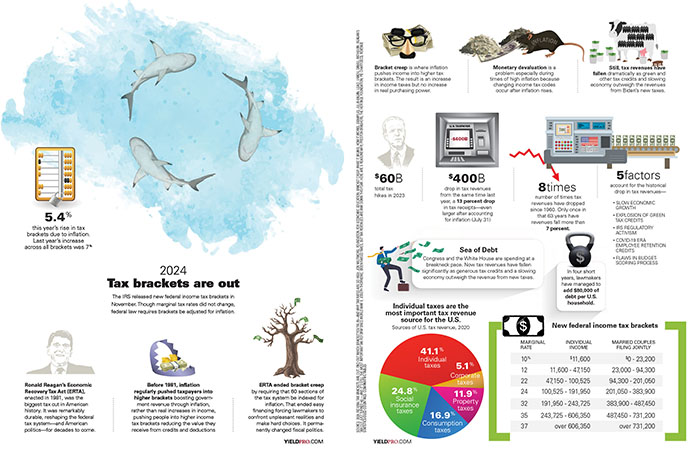Unfortunately, as Smithson discovered, money orders pose a significant fraud risk. While often treated as cash-equivalent funds, banks still treat them the same as checks and, as such, can place the same holds as federal regulations allow on checks. Even a U.S. Postal Service money order can be treated the same as a check for hold purposes, when necessary.
That’s because they are not associated with any particular account. Money orders are much easier to duplicate and nobody would necessarily know. Unlike a check, which has the number of a specific bank account and specific bank routing number printed on the bottom, each money order is unique and the information on it cannot be traced back to a resident account like a personal check can. “It could take months to get a return on a money order, and a subsequent chargeback to your account, if the money order is fraudulent,” said Andrea Tucker, who is product manager for NWP Services Corporation (NWP), a leader in resident billing, rent payment processing and utility management for the multifamily housing industry.
Fraud is just one downside to accepting money orders as payment for rent. They also are vulnerable to theft and loss, the same as cash, not to mention the time staff must spend making manual accounting entries and driving to the bank to make deposits. “A lot of residents won’t fill in the information and they will just hand over a blank money order and that money order could disappear and not be traceable. Unfortunately, not everyone is honest, so theft will always be an issue,” said Tucker.
Thanks to advances in technology, the U.S. is rapidly moving toward becoming a cashless society, as consumers recognize the convenience of banking, shopping and paying bills electronically. In the multifamily industry, electronic rent payment services, offered by companies like NWP and PropertyBridge, make it possible for apartment owners to meet the payment needs of a broad spectrum of renters, whether residents choose to pay by phone or over the Internet, using checks, debit or credit cards, or through automatic debit of their bank accounts each month.
Even so, many renters still prefer to pay their rents in cash or money order. In fact, these largely unbanked residents make up more than half of the renter population in some regions of the country, leaving companies that rent to them exposed to the risks associated with accepting those risky payment options.
“We had several incidences of employee theft and fraud pertaining to money orders, relating to additional fees other than rent, such as pet deposits, transfer fees or utilities, at some of our properties in the Southeast and we’ve been waiting for a solution,” said Mark Copeland, chief operating officer of WestCorp Management Group, which manages 20,000 plus units in 60 Class B and C apartment communities spread from Nevada to North Carolina and up into Indiana.
The answer to WestCorp’s dilemma was Pay by Cash, the newest addition to NWP’s Resident ePay, a full suite of electronic payment features that includes check scanning for certified checks, business checks and money orders, and personal checks and online check payments for rents, utilities and other lease-related payments, in addition to credit card payments.
NWP launched Pay by Cash in June, teaming up with Western Union Global Payment Services, a division of the Western Union Company, to provide more than 44,000 Western Union agent locations in the U.S., where residents can pay their rent and other lease-related charges with cash.
PropertyBridge has provided payment processing for the multifamily industry since 2004. The company partnered with Western Union three years ago and invented the ability to pay rent by cash offsite. But the partnership between the two companies was dissolved in October 2007 when PropertyBridge was acquired by MoneyGram, which is second only to Western Union in the money transfer business. Today, residents of PropertyBridge client communities can pay their rent with cash at approximately 40,000 MoneyGram agent locations across the country.
Both cash payment solutions work like this: To make cash rent payments, residents are directed to visit their local agent locations and complete and sign prepaid services agreement forms. They pay the agent a processing fee, hand over the cash payment and receive a completed transaction receipt. Western Union’s agent processing fee is $3.95 for a transaction of $950 or less. MoneyGram agents do not set a transaction limit, but fees can range from zero to $9.95, depending on whether the property owner picks up the fee, splits it or passes it along entirely to the resident.
The agents accept only the total amount due. And, if a resident has been placed on eviction status by the property management software and the renter’s account is marked “Do not accept payment,” no payment from the resident will be accepted.
“When a resident goes to an agent and makes a payment by cash, that cash gets into a property’s bank account within two to three banking business days, but you’re not going to see it come back out, because the cash will not be returned by a bank,” said Tucker.
NWP provides fliers and promotional pieces that can be hung on apartment doors and included in welcome packages to help apartment companies inform residents about the convenience of Pay by Cash. “We market that convenience to residents, telling them they no longer have to go out and buy a money order and then return to our office to pay their bills. Now they can pay their bills with cash at a location nearby,” said WestCorp VP of Education Pat Wiley. Moreover, Copeland said, WestCorp is beginning to notify residents that neither cash nor money order payments will be accepted onsite.
For WestCorp, signing on to NWP’s new cash payment feature was a value proposition. Properties owned and managed by WestCorp have used NWP’s flagship product offering — Resident OneBill, UtilityPay Manager, and Resident ePay — since 2006.
NWP products integrate with various major property management systems, including Yardi and RealPage. “NWP’s advancements in electronic data exchange capabilities allow for the free flow of resident data between systems, enabling resident billing, utility management and e-payment programs to be more robust and efficient, driving improved rental collections and cash flow and reducing the risk of fraud for multifamily owners and operators,” said Tucker.
The cost to set up Resident ePay varies based on the size of the property and how it is bundled with NWP’s other services. But, savings are significant and owners will see them very quickly, usually within the first couple of months, said Tucker.















